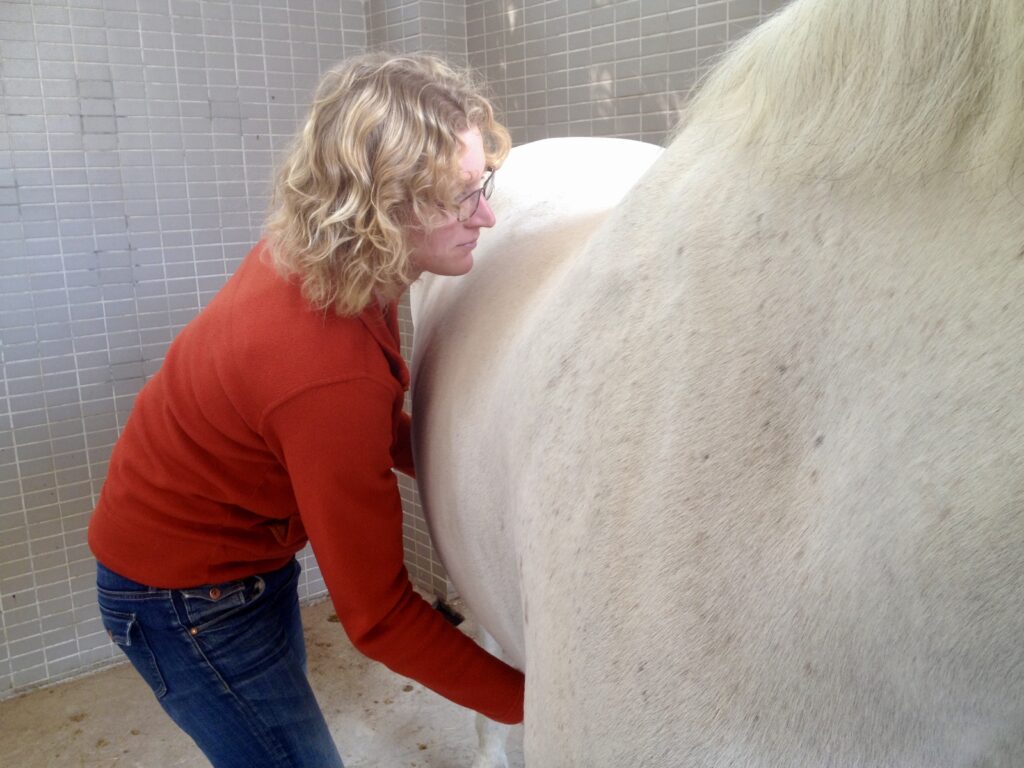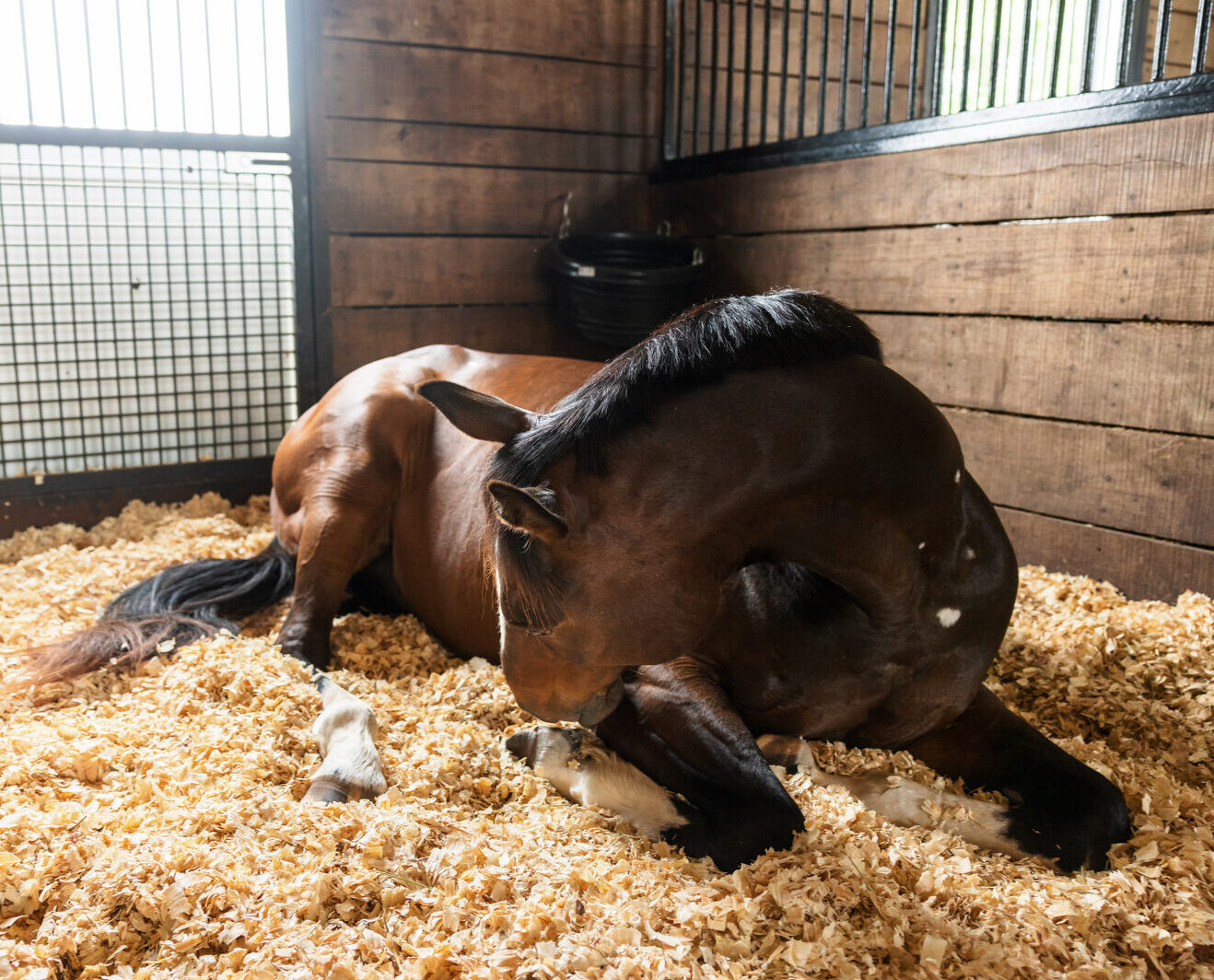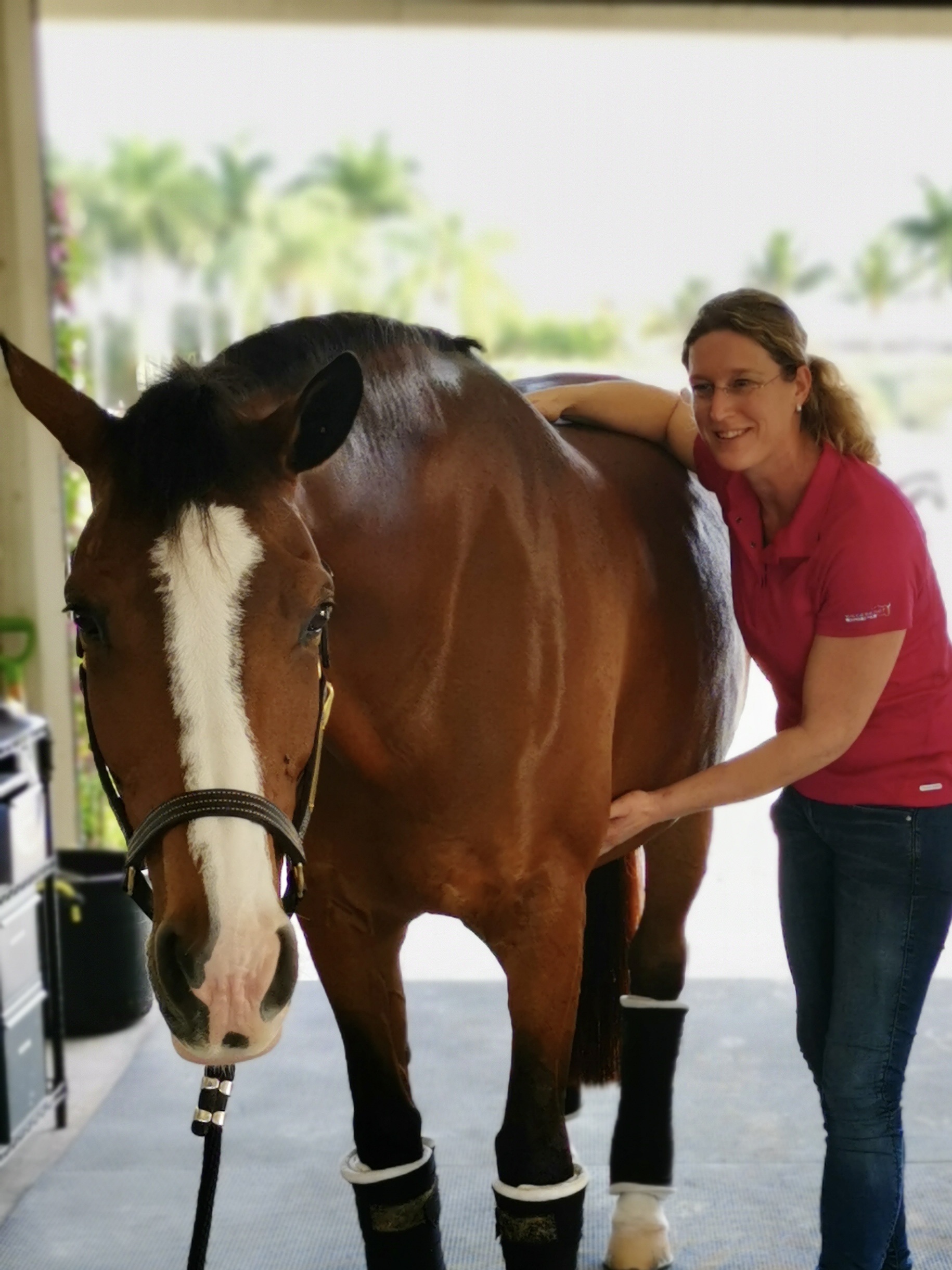One of the basic principles in osteopathy is that every single tissue in the body has a certain dexterity (or mobility) and the tissue needs that to be able to function at its best. It’s not hard to imagine the consequences of reduced mobility in one or more joints as your horse will be stiff or lame. It’s harder to imagine what the consequences are from reduced movement in the intestines.
Moving Intestines
Not only do the tissues involved in locomotion need to be able to move freely, this also applies to all the organs present in the body. Reduced or loss of motion will affect the ability of that organ to function as it is supposed to do. Where we use the word “mobility” for movement belonging to locomotion, we use the word “motility” for movement belonging to the organs.
Breathing
There are different origins of organ movement. Breathing is one of them. Every time the respiratory diaphragm contracts to inhale, the chest cavity increases. At the same time the abdominal cavity decreases. This decrease in space has consequences for the organs of the abdominal cavity. The same amount of organs in a smaller space means that the organs get compressed. At the same time, they shift a bit in position to accommodate the space. The shift in position is possible due to the layer of fascia which encloses the organs. The fascia of one organ can slide in relation to the fascia of the adjacent organ.
Inherent Motion
The second reason for motility in the organs comes from within the organ. Depending on the function of the organ, a certain motion is required. For example: to process food, the intestines have to mix and knead the food mash. At the same time the food mash has to be moved forward. So, the intestines make both a kneading as well as a propelling motion.
Decreased motility
Less motility of the intestines means less kneading of the food mash–meaning the food is not as well prepped for the body to take the nutrients out of it. As you can imagine by now, decreased motility can have a large impact on the fitness of the horse.

Stress
There are multiple reasons for organs to lose some motility. Stress is an important factor, as well as illness and trauma. Besides everything that happens on a biochemical level when a horse suffers from stress, stress also impacts the breathing of the horse. Tension around the respiratory diaphragm will increase during times of stress, thereby decreasing its range of motion. As a consequence, the abdominal organs don’t get moved like they’re supposed to. In addition, tension in the respiratory diaphragm impacts the entrance of the stomach that lies in the diaphragm. Tension of the diaphragm decreases the size of the entrance of the stomach. As a consequence, most horses show a decreased appetite which increases the chances of developing stomach ulcers.
Illness
The clearest example of an illness caused by decreased motility of the intestines is colic. Pain, cramps and/or constipation have a huge influence on motility and vice versa. Quite often, the horse doesn’t recuperate 100% after he colics. In a large percentage of cases, the decreased motility is the cause.
Trauma
In a normal situation, organs can slide in relation to each other due to the layer of fascia which surrounds the organs. In the case of scar tissue, this sliding movement gets complicated. And although you can’t remove the scar, you can work on the tension around it which frees up the pull-tension a scar can give.
Osteopathy
An osteopath is trained to feel movement in all the different tissues of the body. Where the osteopath finds decreased movement, he or she can use a wide range of techniques to improve movement. The techniques used are mostly so-called “fascial listening” techniques. In those techniques the osteopath follows the inherent movement and with polite invitations encourages the tissue to enlarge the movement. It’s not necessary to use force in working with the motility of organs. The intestines of a horse weigh approximately 450 lbs., so there’s is absolutely no use in pulling and pushing to create movement…
Conclusion
Keep in mind that organs need to be able to move freely. Whenever “something” happens to the horse regarding his intestines, and he doesn’t seem to get 100% well after, consider asking an osteopath to work on the horse. Gaining free movement of the intestines can bring huge improvements to the overall well-being of the horse.
Feature photo courtesy of Shelley Paulson


